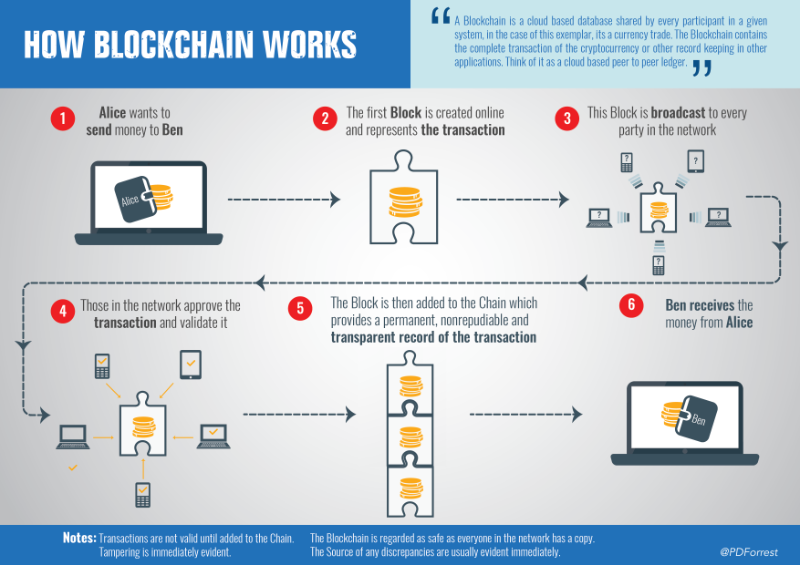What is the Blockchain?

The blockchain is the core of Bitcoin as it is the summary of all the transactions in the Bitcoin Network. As the name implies it is a chain of blocks, or sets of transactions in chronological order.
Each block gets added to the blockchain after a miner finds a hash that is accurate for that particular set of transactions. That hash along with the hash of the previous block is then distributed throughout the network and by consensus added to the most recent end of the block chain.
The Bitcoin Blockchain can be queried, just as other crypto currencies’ blockchain’s can, to provide data on certain addresses – for example the top ten addresses by value or the number of transactions in a certain time period and their size.
The major downfall of the Bitcoin blockchain is its size. It is becoming larger and larger meaning there are issues with storing it on individual computers and synchronising to it.
The Bitcoin protocol has a block time target of about ten minutes – other crypto currencies have a set goal block time of less in general – specifically scrypt alternative crypto currencies such as Litecoin or Dogecoin. The block time is maintained by the difficulty setting which determines the probability of actually finding a correct hash. The higher the difficulty the lower the probability of finding the hash and so the longer it would take the network of computers to find a solution to the set of transactions.
As the number of computers mining and their power increases so does the difficulty, in order to keep the block time equal to ten minutes. However, as the Bitcoin SHA-256 algorithm is not iterative but pure guesswork, like a lottery ticket, the ten minute time is only an expected average. In fact if the network is having an unlucky set of guesses at the correct hash it can take a lot longer to confirm a set of transactions into a block.
The probability distribution of a Bitcoin block time is actually exponential – meaning it can take a very long time sometimes or a very short time – it’s a lottery but the average is 10 minutes which is maintained by the difficulty, which in turn is controlled by the number of miners attempting to solve the block and their hashing power.
